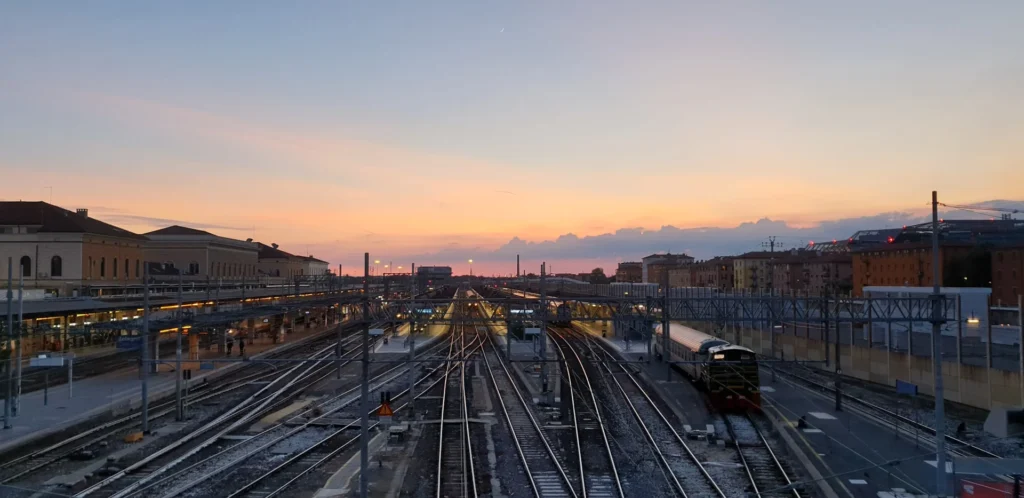Italy- The modernization of the 178 km Palermo-Catania railway line is set to transform travel in Sicily by drastically cutting journey times and boosting regional connectivity. The European Investment Bank (EIB) has approved a massive €2.1 billion project, which includes a direct €800 million loan to the Ministry of Economy and Finance (MEF) and a €1.3 billion innovative counter-guarantee. This counter-guarantee, created with Ferrovie dello Stato Italiane, supports financial intermediaries, with €500 million allocated to Intesa Sanpaolo and €300 million to CDP, leaving €500 million to be allocated later.
This project’s financial structure is a first for Italy’s infrastructure sector. It combines direct government financing with significant support for credit institutions, which is crucial for large-scale projects like the Palermo-Catania line. The 50% counter-guarantee, backed by the InvestEU program, allows guarantees to double to €2.6 billion. Along with the MEF’s €800 million, the total resources amount to €3.4 billion. This initiative is also part of the Italian Recovery and Resilience Plan, which includes €1.4 billion in funding.
The upgrade of the Palermo-Catania line is expected to cut travel times by about 60 minutes, enabling direct two-hour rail services between the two cities. This infrastructure improvement will connect Sicily’s northern and eastern coastal urban areas with the island’s interior, benefiting both freight and passenger trains traveling at speeds of up to 200 km/h. This project is a key part of the Scandinavia-Mediterranean Corridor of the trans-European transport (TEN-T) network, promoting sustainable mobility and economic development in the region.
Deputy Prime Minister Matteo Salvini, EIB Vice-President Gelsomina Vigliotti, and other key figures presented the agreement at the Italian Ministry of Infrastructure and Transport. This financial operation marks the first time such a model has been used in Italy, combining direct EIB funding with counter-guarantees to enhance credit support for companies involved in constructing the railway infrastructure.
The EIB’s commitment includes €800 million in direct financing to the MEF, with the first €200 million tranche already executed. The €1.3 billion counter-guarantee, also provided by the EIB, supports financial intermediaries like Intesa Sanpaolo and CDP, which have received initial allocations of €500 million and €300 million, respectively. The remaining €500 million will be distributed to other financial intermediaries. This counter-guarantee will generate €2.6 billion in total guarantees, facilitating the implementation of construction contracts and subsequent work commencement.
The InvestEU program, aiming to mobilize €372 billion by 2027, backs the counter-guarantee, amplifying credit support for the project. Alongside €1.4 billion from the Recovery and Resilience Facility (RRF), these resources will modernize and upgrade the Palermo-Catania line, enhancing Sicily’s infrastructure and promoting social and economic development.
EIB Vice-President Gelsomina Vigliotti emphasized the project’s alignment with the TEN-T network’s goals of promoting the European single market, reducing the environmental impact of transport, improving energy efficiency, and increasing safety. Since 1998, the EIB has supported Italy’s railway and high-speed system development with over €13 billion, strengthening transport links and fostering social cohesion.
Key stakeholders, including Ferrovie dello Stato Italiane CEO Luigi Ferraris, CDP CEO Dario Scannapieco, and Intesa Sanpaolo’s Mauro Micillo, highlighted the public-private synergy driving the project. They emphasized the initiative’s role in bridging Italy’s infrastructure gap, fostering sustainable development, and enhancing the country’s connectivity.
This landmark financial operation showcases the complementarity between EU transport policy and financial tools like InvestEU and the Recovery and Resilience Facility. It sets a precedent for future large-scale infrastructure projects, driving innovation and collaboration between the public and private sectors to support Italy’s sustainable economic and industrial development.





